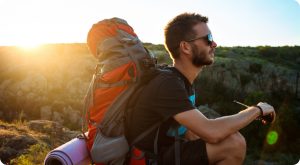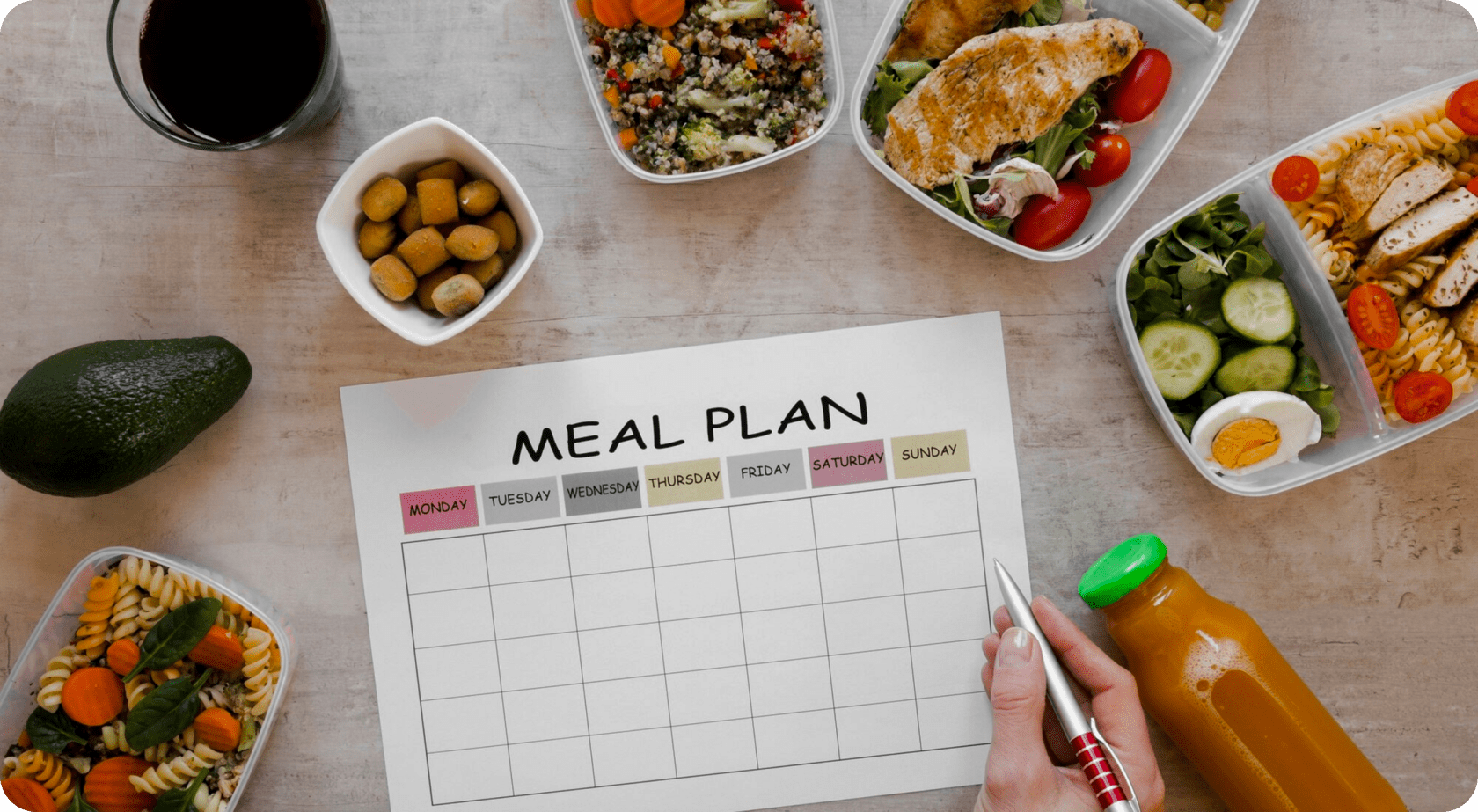Our Travel Checklist is a simple yet handy to-do list specifically designed for athletes when they’re traveling for competitions, training, or events.
With this packing list in hand, you will organize everything you need to bring and do before you travel to other countries or just another part of your country.
Let’s go!
Why You Need This Checklist
You might think that you already have everything covered and this checklist is just a waste of time. But in fact, you can use this list just to ensure you don’t forget anything in the hustle of preparation for the event.
It was created by experienced athletes and for athletes, so you can rely on this handy checklist when preparing for future trips.
Our checklist will be helpful
for those who want to:
Stay Organized
Traveling can be chaotic, especially for athletes who have to focus on their performance.
A checklist keeps everything organized so you don’t forget important items like your gear, uniforms, or passports.
Avoid Mistakes
Forgetting something crucial can be a big problem, especially when you’re far from home.
With a checklist, you can make sure you have everything you need, reducing the chances of forgetting something important.
Reduce Stress
Traveling can be stressful, and you, as an athlete, need to stay focused and calm before competitions.
A packing checklist helps reduce stress by giving you peace of mind knowing t
hey’re well-prepared for their journey.
Save Time
Instead of scrambling at the last minute to pack or remember things, you can use a checklist to plan ahead.
This saves time and allows you to focus more on your training and performance.
It’s not just elite athletes who can benefit from a travel checklist. Amateur athletes, coaches, and even sports teams traveling together can all use a checklist to ensure a smooth and successful trip.
Now, let’s move to the checklist, shall we?
1. Travel Documents
- Passport/ID
- Visa (if required)
- Tickets/Boarding Passes
- Itinerary (details of your trip)
- Travel insurance
These are the essential documents you need for travel. Your passport or ID is crucial for identification, and you might need a visa if you’re traveling internationally.
Don’t forget your tickets or boarding passes, and it’s helpful to have your travel itinerary handy for reference.
2. Athletic Gear
- Uniforms/Competition Outfits
- Sports shoes
- Protective gear (e.g., helmets, pads)
- Training Equipment (e.g., balls, bats, rackets)
Pack all the gear you need for your competition.
Make sure you have your competition outfits or uniforms, appropriate sports shoes, and any necessary protective gear.
If you’ll be practicing or training during your trip, don’t forget your training equipment.

3. Personal Items
- Clothing (for competition, training, and leisure)
- Toiletries (toothbrush, toothpaste, shampoo, etc.)
- Medications
- Sunscreen/Insect Repellent
- Trip money
Pack clothing for both your athletic activities and casual wear.
Remember your toiletries and any medications you need.
If you’re traveling to a sunny or insect-prone area, sunscreen and insect repellent are essential for your comfort and health.
4. Electronic Devices
- Phone/Tablet
- Charger
- GPS watch
- Headphones
- Any necessary adapters/converters
Keep your electronic devices and accessories handy. Your phone or tablet is useful for communication, entertainment, and staying organized.
Don’t forget your charger and headphones. If you’re traveling internationally, check if you need adapters or converters for electrical outlets.
5. Nutrition and Hydration
- Water Bottle
- Snacks/Energy Bars
- Sports Drinks/Rehydration Supplements
Proper nutrition and hydration are crucial for athletes.
Carry a refillable water bottle to stay hydrated, especially during travel. Pack some snacks or energy bars for quick energy on the go.
Sports drinks or rehydration supplements can also be beneficial during intense training or competitions.

6. Travel Comfort
- Comfortable clothing for travel
- Travel pillow
- Earplugs/eye mask
International travel is an exciting but also exhausting experience. So pack items to make your journey more comfortable.
Wear comfortable clothing for long hours of sitting or standing. A travel pillow and blanket can help you rest during flights or long drives.
Earplugs and an eye mask can block out noise and light, making it easier to sleep while traveling.
7. Emergency Contacts and Information
- Create an emergency contact list
- Medical insurance information
- Contact information for teammates/coaches
Be prepared for emergencies. Have important contact information readily available.
Include emergency contact numbers for yourself and your fellow athletes, as well as any medical insurance details. This information is essential in case of unexpected situations during your trip.
Additional Tips on Travel Planning as an Athlete
Start Planning Early
Begin planning travel arrangements well in advance to secure the best deals and accommodations.
Coordinate schedules and address any logistical concerns early on.
Know Your Destination
Look up where you’re going. Check the weather, find out about the place you’ll be staying, and learn how to get around.
Pack Smart
Take what you need and not too much more.
Bring along all the essential stuff for swimming, cycling, and running.
For example, your swimsuit, goggles, bike helmet, cycling shoes, running shoes, and race outfit.
Learn more about how to choose the best running shoes.
Rest Up
Plan some time to relax before and after your big game. Maybe take a nap or do some light stretching.
Drink Water and Eat Right
Keep yourself hydrated with plenty of water. Bring along healthy snacks like fruit or nuts to munch on during your trip.
Adjust to Time Changes
If you’re traveling to a different time zone, try to sleep and wake up a little earlier or later before you leave. It helps your body get used to the new time.
Be Ready for Problems
Sometimes flights get delayed, or your bags might go missing.
Have a backup plan in case something goes wrong, like having extra clothes in your carry-on.
Get There Early
Arrive with plenty of time to spare. It gives you a chance to relax and get used to the place before you have to perform.
Stay Safe from Injuries
Be careful with your body, especially during long trips. Stretch out, move around, and don’t overdo it when you first arrive.

Enjoy Yourself
Remember to have fun!
Triathlons are challenging, but they’re also incredibly rewarding. Take in the excitement of the race and celebrate your accomplishments, no matter the outcome.
Frequently Asked Questions
How should I pack my sports equipment for travel?
Pack your sports equipment in a durable bag or case to protect it during transit.
Make sure to label each item with your name and team details. Keep fragile or sensitive equipment separate and cushioned to prevent damage.
What should I do if I forget something important for the trip?
Don’t worry! Check with your teammates or coaches to see if someone has what you need.
If not, see if the local area has a sports equipment store where you can purchase what you’ve forgotten. Otherwise, you can often find alternative solutions or borrow from other teams at the event.
How can I stay healthy and energized during travel?
Drink plenty of water before, during, and after travel.
Pack healthy snacks like fruits, nuts, and granola bars to keep your energy levels up. Try to get enough rest and sleep, especially if traveling long distances, to help your body recover.
What should I do if I get injured during travel or competition?
Notify your coach or team medical staff immediately if you’re injured.
They’ll assess the situation and provide appropriate care. Follow their instructions for treatment and recovery, and don’t hesitate to seek medical attention if necessary.
How can I make the most of downtime during travel?
Use downtime to relax and recharge, but also stay active to keep your muscles loose.
Bring along entertainment like books, movies, or games to pass the time. Socialize with other athletes and participate in group activities.
Getting ready for your summer vacation and looking for tips on how to fit the training in? Check out some tips on triathlon training during summer vacation.






